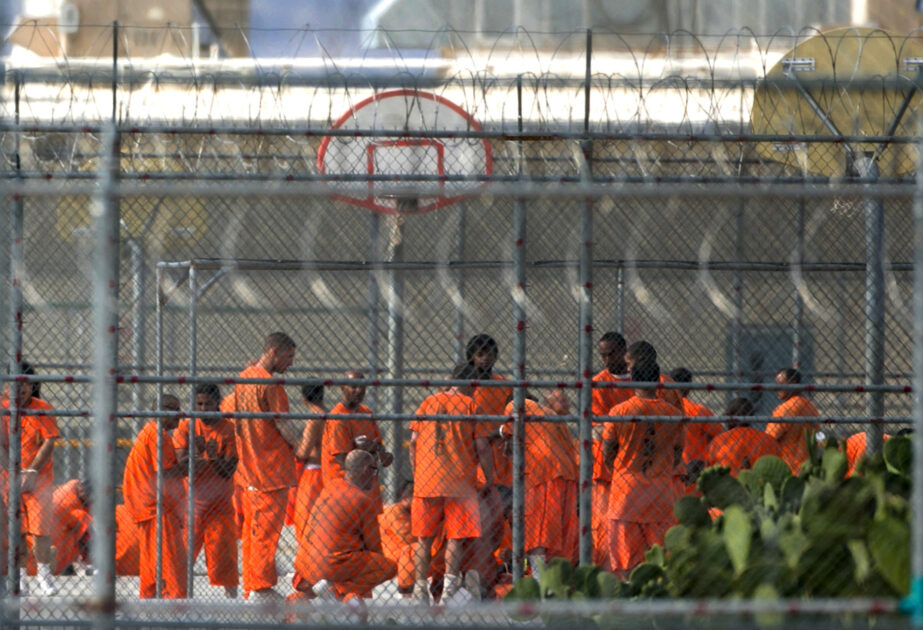Copyright Arizona Capitol Times

I have the privilege of working alongside more than 10,000 dedicated staff and contracted partners as director of the Arizona Department of Corrections, Rehabilitation and Reentry (ADCRR). Together, we carry out our core mission of protecting public safety while providing essential services, care, and rehabilitation opportunities for the more than 35,000 people in our custody. Since 2023, we have pursued a new mission and vision that replaces outdated mindsets and ineffective systems with modern correctional practices throughout Arizona. Across our 15 prison complexes, we are building a safety-centered culture that empowers our staff to be more effective and ensures every individual is treated with respect, attention, and care. Things haven’t always been this way. The department’s history includes serious challenges and failures, particularly in health care. Past mismanagement led to years of litigation and, in 2022, a court ruling that found ADCRR’s health care unconstitutional. Over the past two and a half years, the department has undergone a transformation that is measurable, collaborative, and consistent. We are committed to building lasting change. To date, we have: Increased health care staffing 68%. Tripled the number of physicians on staff. Increased mid-level providers (nurse practitioners and physician assistants) 93%. Increased mental health staff 40%. Doubled health care expenditures to over $458 million in FY2026. We have also strengthened our infrastructure and access to care: opening 160 new skilled nursing beds, 172 inpatient mental health beds, and a new palliative care unit; upgrading HVAC systems across prison complexes, expanding telehealth and transportation services for off-site care; and launching our medication-assisted treatment program for substance use disorder that now serves more than 7,000 patients statewide. Without question, the collective efforts and collaboration of our contracted health care provider, NaphCare, have helped turn commitments into sustained results. Beyond health care, we have prioritized safety and security in our prisons by deploying body-worn cameras, redesigning the Correctional Officer Training Academy, creating new leadership training, and implementing increased pay incentives for existing staff. This, coupled with an intense focus on recruitment of new officers, has improved staff vacancy rates at many of our prisons. We’ve also significantly expanded rehabilitation and workforce initiatives, developing four apprenticeship programs and certifying 375 individuals as peer support specialists, collaborating with Banner Health and MercyCare to open therapeutic art and healing studios, and launching our In2Work culinary training program with Aramark, graduating 67 participants since it began eight months ago. Each of these efforts aims to help people leave prison healthier, more employable, and better prepared to contribute to their communities. That is the foundation of true public safety. Many thought such big change in such short order wasn’t possible. But we proved that it was. Despite this significant progress, a federal takeover of our prison health care system, commonly called a receivership, is now being considered. A federal receivership is an extreme, last-ditch action reserved only for systems that are unwilling or incapable of reform. This is not the case in Arizona. In practice, receiverships often extend for decades and cost taxpayers tens or even hundreds of millions of dollars, as we have seen in other jurisdictions, including in California and, to some extent, our own Maricopa County. A receivership replaces local accountability with layers of federal bureaucracy without any guarantee of faster or better outcomes. ADCRR recognizes the seriousness of these challenges, and we share the court’s goal of achieving timely and permanent improvements in prison health care. But the evidence shows that meaningful progress is already underway. A receivership would not only add delay and expense, but it would also risk derailing the tangible reforms we have put in place. It’s wrong in principle and it’s wrong on policy. Transformation is built with sustained leadership, transparency, and integrity. Our correction system is not perfect, but it is changing for the better. And that change is happening faster, smarter, and with greater accountability than ever before.



